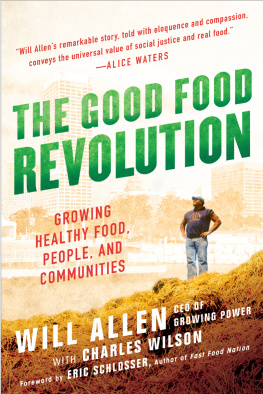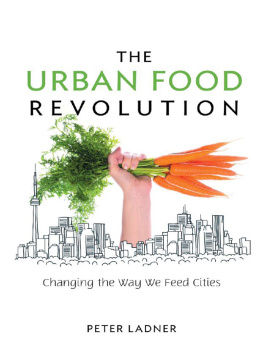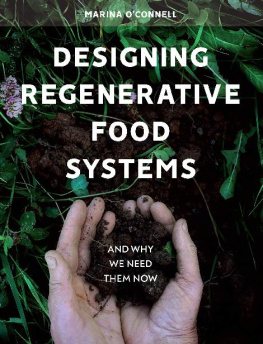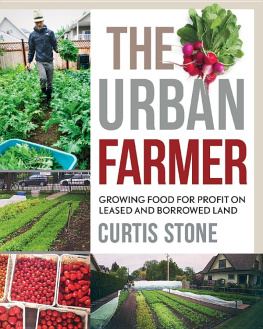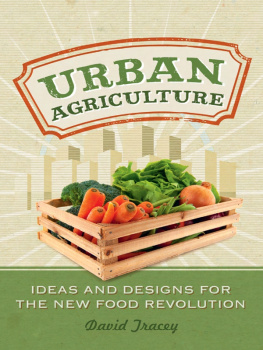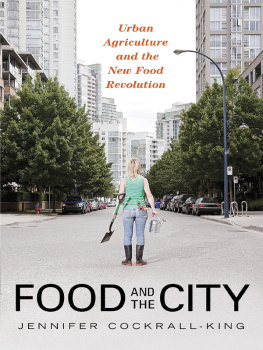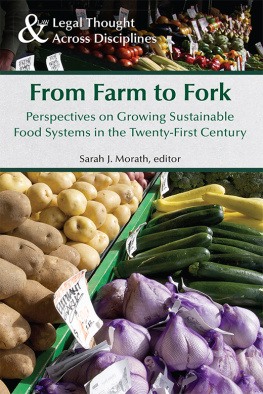Praise for The Good Food Revolution
Featured on CBS Evening News, CNN, Fox News, The Colbert Report, Tavis Smiley, and NPRs To the Best of Our Knowledgeand The Splendid Table
Goodreads Choice finalist for best food book of the year
2013 NAACP Image Awards nominee for autobiography / biography
[Allens] book could have been another look at the problems of the industrial food system, the lack of healthful food in many poor communities, and ideas to reverse course. And it is that, but its also told through the painful but important lens of the African-American experience.
Allen gives readers the personal, moving account of a man whose family became part of the last centurys great migration of African-Americans out of the South. Of a man who traded a successfuland not too difficultlife in the corporate world for the economic uncertainties and the nonstop labor of a small farmer.
Los Angeles Times
Will Allen, the CEO of Growing Power, is teaching us how to feed a nationnaturally. His story is not only compelling but a treatise on how our country supplies food and how the absence of a grocery store in your hood is no excuse for not finding a way to feed your family good food.
Ebony
[A] well-written, fascinating, and truly inspiring memoir about hope and resilience through agriculture.
Serious Eats
Will Allens life proves that success often grows from failure.
The Bay State Banner
Mr. Allen has written both a touching autobiography and a compelling history of this countrys dynamic food landscape.
Handpicked Nation
What [Will] Allen does with a small plot of land and a lot of determination is nothing short of inspiring.A moving story of one mans success in producing healthy food for those who need it the most.
Kirkus Reviews
From the plots of his Milwaukee urban farm to low-income communities across America, Will Allen has shown us a new type of heroism. Through The Good Food Revolution, Allen recounts his effort to reclaim his familys heritage and, in doing so, confronts lingering disparities in racial and economic justice. As the champion of a new and promising movement, Allen is skillfully leading Americans to face one of our greatest domestic issuesour health.
President William Jefferson Clinton
Far more than a book about food, The Good Food Revolution captivates your heart and mind with the sheer passion of compelling and righteous innovation. Wow!
Joel Salatin, author and farmer at Polyface, Inc.
Will Allen is a hero and an inspiration to urban farmers everywhere. Now, with The Good Food Revolution, we learn how Allen rediscovered the power of agriculture and, in doing so, transformed a city, its community, and eventually the worldwith the help of millions of red wiggler worms. Told with grace and utter honesty, I found myself cheering for Allen and his organization, Growing Power.
Novella Carpenter, author of Farm City and The Essential Urban Farmer
Will Allens remarkable story, told with eloquence and compassion, conveys the universal value of social justice and real food.
Alice Waters
After retiring from professional basketball and executive positions at KFC and Procter&Gamble, Will Allen became CEO of Growing Power. He lives in Oak Creek, Wisconsin.
Charles Wilson is a journalist as well as the coauthor with Eric Schlosser of the #1 New York Times bestselling childrens book Chew On This: Everything You Dont Want to Know About Fast Food.
THE
GOOD FOOD
REVOLUTION

Growing Healthy Food,
People, and Communities
WILL ALLEN
with Charles Wilson

GOTHAM BOOKS
Published by the Penguin Group
Penguin Group (USA) Inc., 375 Hudson Street,
New York, New York 10014, USA

USA | Canada | UK | Ireland | Australia | New Zealand | India | South Africa | China
Penguin Books Ltd, Registered Offices: 80 Strand, London WC2R 0RL, England
For more information about the Penguin Group visit penguin.com.
Previously published as a Gotham Books hardcover edition
First trade paperback printing, July 2013
Copyright 2012 by William E. Allen
All rights reserved. No part of this book may be reproduced, scanned, or distributed in any printed or electronic form without permission. Please do not participate in or encourage piracy of copyrighted materials in violation of the authors rights. Purchase only authorized editions.
Gotham Books and the skyscraper logo are trademarks of Penguin Group (USA) Inc.
The Library of Congress has cataloged the hardcover edition of this book as follows:
Allen, Will, 1949
The good food revolution : growing healthy food, people, and communities / Will Allen with Charles Wilson.
p. cm.
ISBN: 978-1-101-57798-1
1. Urban agricultureSocial aspects.2. Food supplySocial aspects.
3. Alternative agriculture.4. Sustainable agriculture.5. Community gardens.
I. Wilson, Charles, 1974II. Title.
S494.5.U72A45 2012
631.5dc23
2011045592
Designed by Sabrina Bowers
While the author has made every effort to provide accurate telephone numbers, Internet addresses, and other contact information at the time of publication, neither the publisher nor the author assumes any responsibility for errors or for changes that occur after publication. Further, the publisher does not have any control over and does not assume any responsibility for author or third-party websites or their content.

To Cyndy, Erika, Jason, and Adrianna, who braved this journey with me, and to my parents, Willie Mae and O.W., whose wisdom helped guide the way.

In dirt is life.
G EORGE W ASHINGTON C ARVER

FOREWORD

By Eric Schlosser
A ny discussion of race in American society seems, increasingly, to be taboo. The election of an African American president has led many to argue that the color of a persons skin has become irrelevant, discrimination is a thing of the past, and we now live amid a post-racial culture. In my view, thats wishful thinking. A long list of contrary arguments can be madebut the most useful, in this foreword, would be to mention how this country has, since its inception, produced its food. The history of agriculture in the United States is largely a history of racial exploitation. From the slavery that formed the rural economy of the South to the mistreatment of migrant farm workers that continues to this day, our food has too often been made possible by someone elses suffering. And that someone else tends not to be white.

